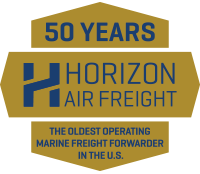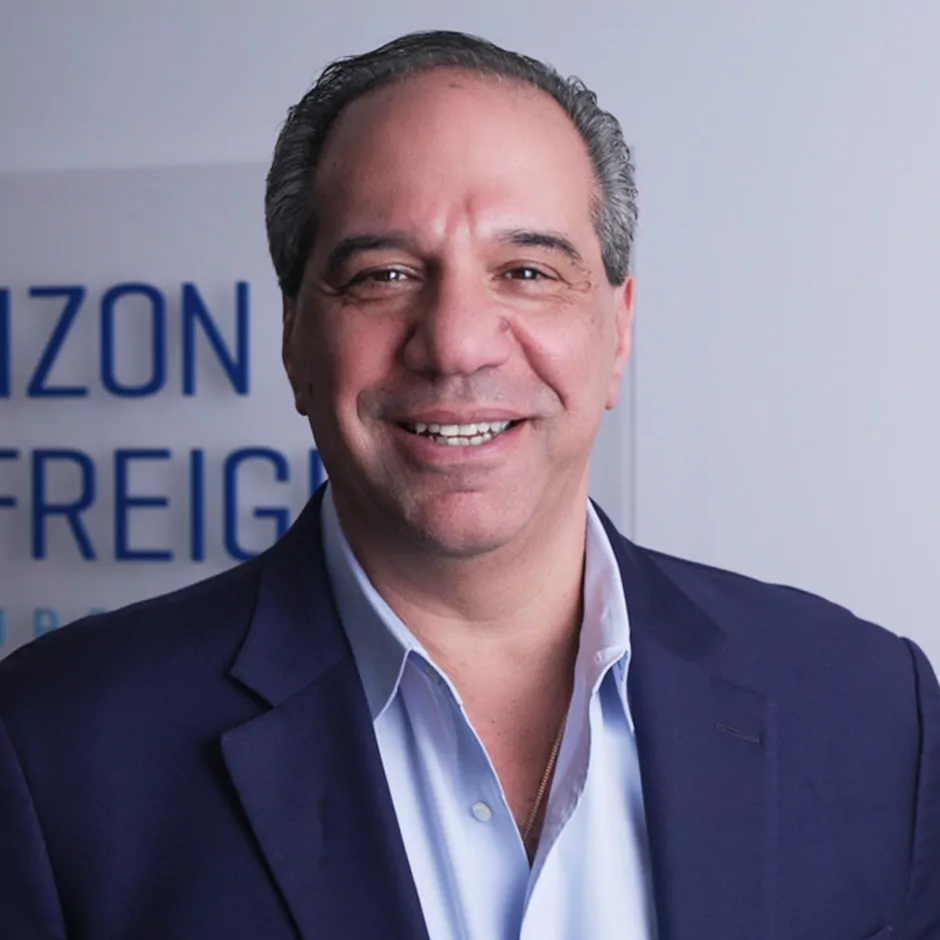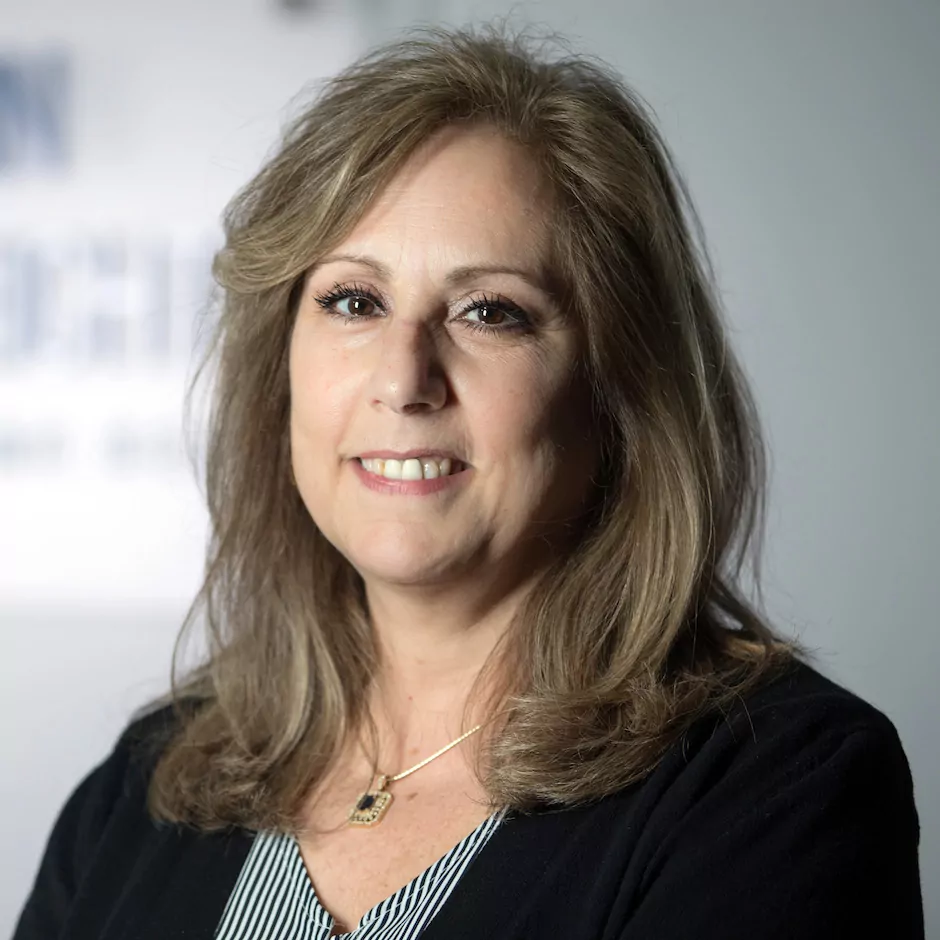During the spring and summer months, many families, individuals, and couples look to cruises for their vacations. Traveling in this way can provide exotic locations, stunning views, easy navigation, and decadent service all in one place.
Though it may be easy to imagine what goes into the majestic construction of each vessel, the careful mapping of routes, and the luxury of on-board experiences — what does it take to feed everyone on board?
The Particulars of Equipping a Mini City
“A cruise ship is really a mini city on the sea,” says our Director of Cruise Operations, Alex Durante. “It needs everything imaginable onboard for its week-long voyage: all sorts of dry and perishable foods that originate globally, linens for cabins, spare parts for the engine room, chlorine for the pools, an array of cleaning chemicals, every type of beverage, waste management equipment, whatever’s needed to fulfill the entertainment on board. The list goes on and on, and all these items need to be strategically shipped to the vessel week after week. But in the end, all of it has to get there on budget, precisely on time, and without any room for error or delay.”
“It’s not like a cruise vessel can stop to pick up things,” Horizon’s Chief Commercial Officer, Josh Roman, adds. “Whatever they have on board is what they have on board. If an essential ingredient is missing, they may have to substitute it. Even if a chef is working with the wrong kind of flour, they’ve still got to make the bread.”
Supplying such a “city on the sea” requires the labor of hundreds — if not a few thousand — individuals depending on the size of the ship. There are many moving parts, and a lot of provisions needed. “For smaller luxury cruises,” Durante says, “when it comes to meats, poultry, etc., we’re shipping somewhere around 5,000 pounds for a single voyage. Then say 7,000 pounds of produce, 15,000 pounds of beer, alcohol, wine, soda; you can see over 2,000 pounds of soda alone. And for those with a sweet tooth, 300 pounds of ice cream.”
At Horizon Air Freight, we specialize in catering to smaller, boutique operators: ships that usually limit their passengers to 200 – 1,000 people on board, as they often have unique itineraries requiring customized solutions. Though the volume may be less than that of a larger cruise line, the needs may actually be greater due to the areas the vessel(s) will operate in. Tickets for some of our clients can be thousands of dollars. Passengers are therefore expecting an even higher level of service, because they’re receiving an even more intimate experience.
“We provide white glove service for all of those customers,” Durante says. “Whatever guests want, we can make it possible.”
“Everyone on these trips,” expands Roman, “expects that when they bite into a tomato, it’s absolutely the freshest tomato you can get. But a lot of people don’t realize how that tomato got to that salad. We’re the ones receiving the product and are aiding and supplying it to the ship.”
Lots — and Lots — of Logistics
Durante expands on how this whole process works: “Months prior to the start of a specific season, take The Mediterranean Season for example, our customers come to us with a list of all their date on boards (DOBs). This list generally includes several dozen port calls per ship. We need to provide each customer with the dates they need to have all of their purchases delivered to our consolidation hub for each DOB.
“Urgent items are shipped by air freight to the ship, but 95% of all procured items are shipped by sea, due to weight and volume. Ocean freight planning involves a strategic and very calculated review of the schedules for all transportation carriers with over-the-water service to the customers’ unique destinations. It is also our fiduciary responsibility to the customer to identify the carrier(s) with the most cost effective, yet direct service.
“Once we find a sailing schedule where the cargo vessel’s ETA is aligned with the client’s DOB, we then have to work backwards to identify all of the dates in between; i.e. the ETD from the origin seaport, the cut-off date at the origin export terminal, the date which all inventory picking/prepping/packing will commence, and the most important date of them all, the date by which all of the clients’ purchase orders need to be delivered to our warehouse. We have one chance to make delivery to the ship, so there’s zero room for error!”
Multiply this by the fact that several of our customers have 10+ ships all over the world at once. Each ship is in and out of a different port once a week for 52 weeks a year. “52 weeks for 10 ships is 520 DOBs. That’s in excess of 3,000 different yet strategic dates we need to calculate for that customer alone to account for a full year’s itinerary. It can get dizzying.”
But at Horizon, we’re equipped for all of this. “We do the same thing for cruises as we do everyone else — work backwards from the dates when they require things,” says our Director of Marine Logistics, Rosemarie Susino. “We don’t make the decision about how anything’s being transported, because ultimately that’s the customer’s decision. But we do plan out with the knowledge that in general, ocean transit takes much longer. Air freight is faster but more expensive. That’s why these cruise owners try to plan so far in advance so that we can schedule things through the year. It’s more affordable, and easier for their schedule.”
How do we ensure so many deliveries at once? “We just dot every i and cross every t,” Horizon’s Senior Routing Manager, Bridget Aglio, says with humor. “We use all means possible to confirm delivery: Phone calls, computers, cell phones. It’s a lot of communication. Some of our methods depend on delivery location as well. For example, some of our worldwide warehouses are in our WorldTrack 2.0 system, so everyone can see when delivery happens. Other ports we’re not linked up with, so we do it the old fashioned way — with emails and phone calls.”
Navigating Obstacles
Even with advance planning and preparation, unexpected challenges can occur. For example, “At Christmastime, airlines are full and often have less cargo space,” Susino says. “There are certain services you can pay for with airlines to make yourself a priority, but honestly anything could be bumped. Most airlines will talk to us about the reality, and then we go look for other options. We don’t tell people we can do things if we’re not sure we can. Weather, for example, is always out of our control. We just do our best.”
“On occasion we’ve picked up freight ourselves and moved it to another airline which may have a sooner departure,” Aglio adds. “We’ve had to do that a few times.”
Regardless of when the cargo is due to arrive, location also has to be taken into consideration. “Most countries have different requirements or regulations for food,” Roman says. “For example, in some countries, specific animal products have to arrive at the same port it’ll be departing from. You can’t ship it to some other city and have it sent to the port of departure. So workarounds are needed there.”
“And then too what happens if there’s a strike?” Managing Director at Delver Agents, Vero Palacios, adds. “During the World Cup last year, there was an impromptu holiday in all of Argentina. So we all jumped in to find solutions for that unexpected delay.”
Sometimes even the cost of getting something in a hurry can pose a challenge. “You might save a fortune using a standard courier service, but it’s never going to get there,” Roman cautions. “And the difference between something arriving and not – it’s just too great. Imagine what happens if you have a special menu focusing on Norwegian salmon, and it doesn’t show up. The expense and hassle of redoing the whole menu alone would be considerable. And in worse cases, the expense of refunding tickets for disappointed passengers, or reversing the damage done to your brand — it outweighs anything you would spend to ensure it gets there.”
Whether it’s location, weather systems, speedy freight needs, or anything else we have to work around, Durante reinforces: “We are taking care of our clients in the same way they take care of their passengers.”
Servicing Special Requests
“Occasionally you do have last-minute requests,” Susino says. “Just recently we did a shipment for a boutique cruise line that requested a particular coffee maker from Europe. All their other containers had gone out, so we shipped it by air freight. To get to one particular passenger.”
The team can share several other examples, too:
“One time there was an inquiry for a rare type of fish from the New Orleans area that a passenger requested for a dinner service,” Durante says. “The cruise vessel was going to be calling Belize in a few days. We had to pick up the fish from this specialized company, bring it to our warehouse, pack it with dry ice, and fly it via perishable air service to deliver it to the vessel in Belize on the DOB — all for one meal.”
Palacio illuminates further: “In South America, lobster is a warm water crustacean. It’s really not available. So we had to bring some in from Cuba. The crate was full of live lobsters. Our Suppliers Division Manager had to go to Buenos Aires in summer, where it’s 84 degrees in the shade, wait there for them to arrive, make sure the temperature was still okay, and get the lobsters to the ship. Kobe beef in Ushuaia also does not exist. When it’s requested, we have to fly it from Japan to Ushuaia.”
Durante shares a final story: “Last month, we had a special transportation request for 5 kgs of specific caviar that originates from California, for serving at a chartered wedding cruise boarding in Miami. We needed to make sure it remained at the precise temperature during its transit, and once it arrived in Miami, we had to have it stored over the weekend without breaking its cold chain environment. Then it was delivered on the morning of the DOB via a refrigerated truck to the cruise ship. In situations like this, you can’t go to a standard courier company and say ‘Can you pick up this caviar in CA and send it to this cruise ship?’ You need a specialty company like Horizon.”
That’s because adapting to special needs and unexpected crises is what we’re used to.
How We Do It All
“Horizon is the oldest operating marine freight forwarder in the U.S., and arguably the world,” says Durante. “From day one of our 52 years of experience, our focus has always been marine. We started our service to cruise vessels in 2017 by flying a few cases of produce from the West Coast to Papeete, and it morphed from there. Once we demonstrated that we had the infrastructure and expertise to expedite shipments to a ship in the remote South Pacific, word got out and our business grew very quickly.
“All of what we do is very specialized,” he continues. “We’re dealing with thousands of cruise passengers weekly, their unique tastes in food, and all of the luxury or specialty items they require during their voyage. We have an amazing team that works their butts off. Everyone is highly intelligent, hard working. We simply wouldn’t be able to grow at the rate we’re growing if we didn’t have the best and most dedicated people working for us. You can have the best business model in the world, but you need the right people to run the show.”
Lucky for all of us, each day of servicing our cruise industry clients presents interesting new challenges that keep everyone intrigued. It’s invigorating to serve cruise vessels (and all our other clients) by getting them they need, when they need it, safely, cost-effectively, and on time. For more information about what our team can do for yours, contact us online or call directly at 800-221-6028.
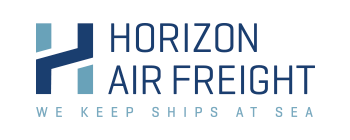
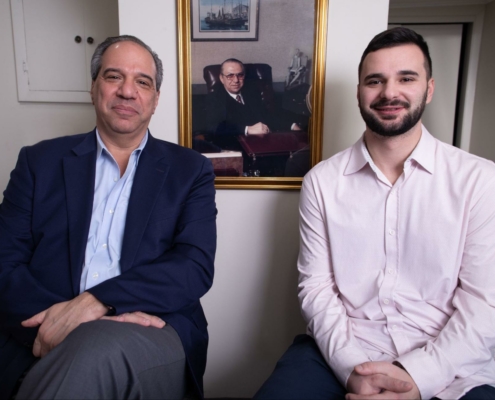
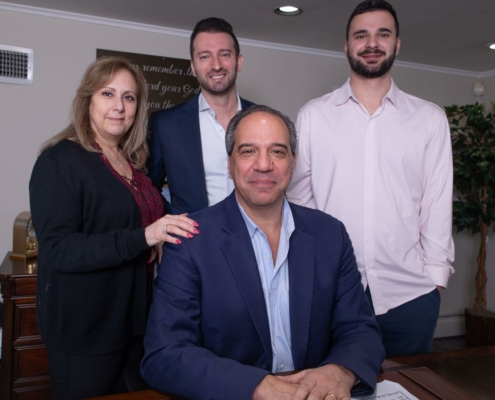
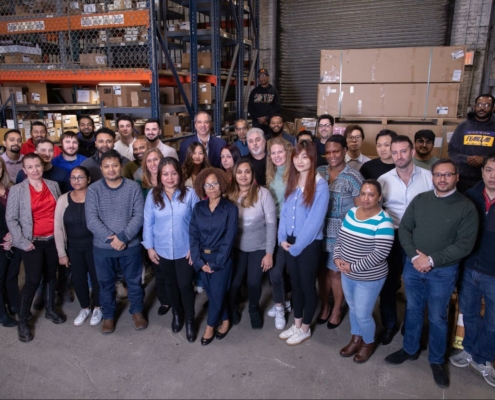
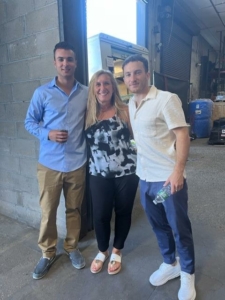
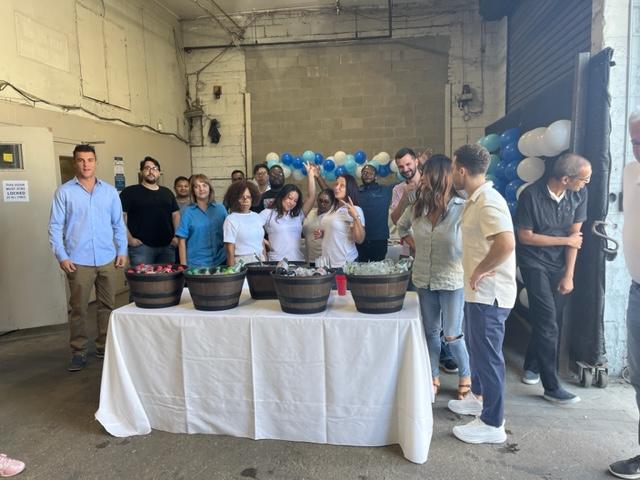
 Jim Gassert
Jim Gassert

